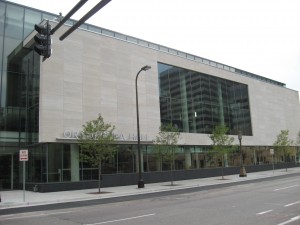#762 – Dick Bernard: Minnesota Orchestra Lock-Out. What's ahead?
UPDATE: August 21, 2013: This important link forwarded by John B, received from “my niece, an attorney in Albuquerque. She once worked for the MN Orch Youth Symphony and is a cello player from St. Olaf.”
August 24, 2013: In the 23rd Star Tribune an article appeared on page B3 of the Metro Section giving management site on the Domain name issue (referred to in the above link). The article did not appear in the on-line edition, at least was not found, but is now accessible. Here is the STrib link. Here is a pdf of the actual article in yesterdays Star Tribune: Orch Domain names001
The musicians website: here
Previous posts about the Minnesota Orchestra Lock-Out: October 18, 2012; December 7, 2012; June 1, 2013; June 5, 2013; June 21, 2013; July 26, 2013; August 16, 2013; August 19, 2013.
When I began blogging in March, 2009, I had no idea what would evolve. Over the years, I’ve obviously been prolific. I’ve also noted that I’m eclectic – I am interested in lots of things, some passionately, and sometimes topics take root, like the Minnesota Orchestra Lock-Out, now near a year old.
We went to the Community Forum about the future of the Minnesota Orchestra, sponsored by Orchestrate Excellence, last night, and I included a brief report and the links to the video and the handout here. I would urge taking the time to access both handout and video, and I would also suggest joining Orchestrate Excellence network (click on “Join the Coalition” tab). Orchestrate Excellence seems to be reasonable folks with an objective of keeping our World Class Orchestra intact, and finding some way to settlement.
I know collective bargaining all too well: it was my job for 27 years. My colleagues and I worked in diverse ways with thousands of collective bargaining negotiations and agreements in that time. We dealt with upsets, small and large, and occasional strikes (really pretty rare). Never do I recall a Lock-Out, and certainly no Strike that lasted anywhere near as long as this Lock Out has prevailed. The geniuses who devised and sold the Lock-Out strategy give meaning to a favorite country-western tune of mine: “What was I Thinking”.
But…that’s what they thought, and the way these situations often times go, once committed to a strategy, one follows it till death. And that’s the scary part of this conflict. The longer this Lock-Out has continued, the harder the cement in which feet are planted, and the bar for a “win” gets higher and higher. On the Union side, there’s nothing left to lose; on Management, a single-minded focus on destroying the Union. Very, very unhealthy.
We arrived early enough last evening to give me time to walk around the block and see the now infamous Lobby. I took a few photos.
(click to enlarge photos)
It was more than a little ironic, seeing “Orchestra Hall” on the side of the building, since the musicians who make up the Orchestra have been locked out without pay or benefits since October, 2012. And, of course, with the absent Orchestra, similarly locked out have been those of us who are called “Listeners”, the “Audience”.
As I walked down Nicollet Ave I noted through the window of the still-incomplete lobby a single step-ladder being used for something. Step-ladders are useful tools for achieving a goal.
I wondered what “step-ladder” exists to end the War at 1111 Nicollet Mall. A one-sided “victory” will be a Pyrrhic one, with no good end. Perhaps that Pyhrric event has already occurred. I hope not.
In our small group last night, I made a couple of comments which tend to summarize my feelings at this point in time:
1. The settlement will have to be made by the two parties to the bargain, the Orchestra Management and Orchestra itself.
2. As for us, the Locked Out audience, each of us in our own way need to do something; and that something should be a bit beyond our normal self-imposed limit. We can’t afford to sit on the sidelines. The ball is in our court. Last night was an excellent organized kickoff bringing together people of diverse opinions, all who care deeply about the future of our Minnesota Orchestra.
Comments:
from Mike R, Aug 20:
Thanks for keeping us in the loop, Dick.
We heard about the forum on KSJN and were wondering if it would help.
I have no confidence that MN Orch management bargains in good faith. What does your experience with labor negotiations tell you?
From Will S, Aug 21: Nobody knows what to do, not even my classical musician friends.
Nobody can tell us specifically what to do. They just don’t know.
It will play out by itself until someone comes up with a specific proposal to present to the governor and the Legislature and copy the public.
Response from Dick: This is a time for innovation. There’s nothing worse than doing nothing! Innovate.
from Cathy A, Aug 21: I was there [at the Forum] as well and inspired by the #s that showed up — but nothing in the newspaper this morning!
There will be a lot of PR work when (if) this thing is settled. I appreciate your comments and efforts.
from John B, Aug 21:
Is Minneapolis (and Minnesota ) becoming a cultural Detroit?
I’d like to see the comparison of salaries for the Viking players and the MN orchestra players.
What about the governmental financial subsidies for the MN Orch and the Vikings Stadium, etc.
Dick, you are correct in my opinion. The lockout is union busting, pure and simple!
From Molly R, Aug 21: Thanks, Dick. Fyi, this article up on MNPost today, too.
From John G, Aug 21: Dick, taking a stance of neutrality can have (and has been known to have) the opposite effect: namely, pressuring labor to cave in to management. I
hope that Orchestrate Excellence is being very careful to avoid that outcome. Fletcher’s one insistence that the lockout end unconditionally is his signal to the Board that there must be a level playing field for starters, or so it seems to me. Now is the moment, perhaps the last moment, for the MO Board, filled with leaders in our community, to take courage enough to initiate this way out of a debacle that our world-class Minnesota Orchestrate does not deserve. If Senator Mitchell can help pull this one out of the fire, he will have crowned his distinguished career with a historic last-minute “save” (with thanks for your contributions to a win/win).
From Vicci J, Aug 22 (retired music educator in St. Paul MN): Hi Dick, just read your blog, and here are a few comments.
Audience development to uphold the economy of arts tourism, is a state-wide and on-going generational project in all K-12 schools.
It will take 20 years to turn the MN Orchestra around, because it took 20 year for its demise. Today the MN Orchestra, as all major orchestras, need to payroll lobbyists capable of influencing legislatures to maintain the funding of music education programs.
In fact the only definitive insurance the arts tourism economy has, is arts programs in K-12 schools. So where are the lobbyists for music education?
Funding to school music programs was systematically cut, gradually, starting in the 1980s. If any one wants specific documentation regarding the politics of these cuts, read “The Manufactured Crisis” by Biddle and Berliner.” The proof is in the research and numbers.
A perfect K-12 program looks close to this:
Elementary School: Early Kodaly or Solfeggio in grades Pre-K-3. Maintain in classroom vocal music through grade 6.
In grade 3 start Suzuki strings; in grade 4 start wind instruments.
With early music education, in grade 3, students can read music, hear pitch differences and sing in-tune. In grade three, students are now physically ready to hold string instruments, and in grade 4, large enough to blow into a wind instrument.
These instrumental programs are scheduled in (a minimum of) 30-minute half hour, during school, pull-out-of class-lessons, with up to 4 instruments that are alike. To maintain National Standards in Music Education, there would need to be 2 such pull out classes per week. When students reach the end of their first year, a full rehearsal is added once a week.
This continues through grades 4-5-6.
Junior High: Students move into junior high: elective classes in choral; band; or orchestra classes.
Senior High: Students have elective classes, several academic levels, of band, orchestra, choral, and music classes. And lots of public performances.
This is how a community-city-state, develops a generational audience base for any major arts organization such as the MN Orchestra.
To A New Beginning: The Twin Cites Arts Tourism Economy is on the down-slide, and fewer young family’s will consider moving to Minnesota unless the public becomes vocal to state and city government officials about funding K-12 music education.
Governor Dayton has returned some funds to the education budget, but not enough to instantly repair the economic damage that has been done to both orchestras. Minnesota needs a brigade of arts lobbyists to accomplish this.
Who will find and hire them if not the arts venues?
from Alan S. Aug 23: I recently received an e-mail request from the Manager of Individual Giving for a donation to the Minnesota Orchestra Guaranty Fund. I believe that the people that are in management positions with what was once a great orchestra are now so far from reality that they as managers don’t begin to understand what they have virtually wrecked by locking out the people that made the music. The Director has already given his date that he will resign, quite a few of the musicians have left for other orchestras, and the management is looking for donations like they want to be rewarded for what they have done?
ADDITIONAL THOUGHTS FROM DICK BERNARD ON AUGUST 22, 2013:
Tuesday night, after Allen Fletcher’s talk, we were in a randomly selected group of 13 people to discuss the two questions in the Orchestrate Excellence handout (link above). All of the other participants were, presumably, in similar kinds of groups as ours: just ordinary folks talking.
I was aware, and I am aware, that few people are very aware of even the basics of collective bargaining. As for me, all the assorted aspects of collective bargaining were my full-time job for 27 years, and myself and my colleagues dealt with, literally, thousands of collective bargaining agreements.
I know collective bargaining.
Bargaining is, in my opinion, more than anything else, about relationships between people.
Here are some comments I heard within my own small group, and my interpretation of them. These are strictly my thoughts, based on my own experience:
1. Is there any analogy to an ordinary persons life in the present Lock-Out of the Orchestra? I think there is such an analogy: it’s called a divorce. Most all of us have either experienced a troubled marriage, or know well someone who has. Now, assume one partner has all of the temporal power: the money, the cars, the decision making authority; while the other party has all of the talent and most of the friends in the neighborhood. Mr. Fletcher, as I recall, described such an “asymmetric” relationship, where the Orchestral Association has everything; and the Orchestra members have nothing at all, except many friends who feel completely powerless to do anything.
Let’s say that right before Court, the parties agree to reconcile, to settle. Assume the asymmetric couple I just described above. How will this work if/when the impasse is broken, by whatever means, through whomevers influence.
Even most optimistically, this will be an extraordinarily difficult reconciliation.
2. Someone in our group said that Board members had ponied up $4,000,000 to essentially save the Orchestra. Don’t they deserve some sympathy? This is interesting, and the immediate response would be “yes”. But…this is a number without any definition whatsoever. It is just a number tossed out.
Assuming that the number is accurate and its use correctly identified (not safe assumptions, but let’s assume they are), there are about 80 members on the Orchestra Board. This would mean about $50,000 per Board member. Board members are basically “high net worth” people to begin with: that would be a normal criteria for nominating Board members to a large non-profit. It would take, at maximum, $1,000,000 of idle money to generate $50,000 a year, without ever touching the principal. And such a donation would presumably be tax deductible. It would take roughly 200 six-performance listeners to generate the same revenue, and such revenue would not be deductible.
In addition, an aggravation for me, which I expressed within the small group, is that, to my knowledge, we listeners were never asked nor informed about the change in orchestra direction, nor the supposed financial crisis. We listeners are a massive non-entity to the decision makers, except to the extent that we provide revenue.
3. Why doesn’t the Union just make a counter-proposal, even if locked out? This is a labor law problem that the vast majority of individuals would not understand, but that the Union bargainers are fully aware of. Orchestral Management would love to have such a proposal. My understanding of this is it would make breaking the Union even simpler. One of the very clear messages from Fletcher in his talk was that the Board needed to unilaterally end the Lock-out to make any settlement possible.
4. Why don’t we adopt some new model (i.e. musician representatives on the Board), etc? There are different models of governance. Unfortunately, we are stuck with the current labor-management model until after the current situation is settled. Some would like to fire the entire Board. I’m sure some would like to just get rid of the Union. Both have some logic. But both are crazy ideas. This is not normal labor-management relationships, and we’re stuck with the status quo until there is some kind of settlement, however that settlement looks. I can’t even speak intelligently about which management should be fired: the Orchestral Association Board activities do not seem open to public view. Imagine a local school board whose members were inaccessible to the public, and unaccountable to the public. Essentially, this seems to be the current Orchestral Association management.
5. What can I do? At one point in the small group, somebody asked how many people we had in our personal networks, and how we could work together. If I recall correctly, he said he knew about 15. I said my network was about the same (though this writing will go to a core group now including about 30 people). I don’t recall anyone else commenting on this. As an audience, a group of listeners, we are fragmented, and it is difficult to break this fragmentation – we know the people who we’ve come to know in our section of the auditorium, or others we know have been at one or another Orchestra event, but no one else.
The only remedy I can see to this is to plod along, by bits and pieces, creating a network for the future.
We didn’t plan to this crisis (which we didn’t know was about to happen), so we can feel justified in pleading ignorance. But we can no longer plead ignorance.
6. But I don’t know what to do? In the group, I said I had only two pieces of advice: 1) do something; 2) stretch yourself (I mention them both in the original post, above.)
Doing nothing, being defeated, assures only defeat. We can do a great deal, in many different and creative ways. From now on, IF I return to Orchestra Hall, the Orchestral Association Board is not going to be allowed to be anonymous and unaccountable.




Leave a Reply
Want to join the discussion?Feel free to contribute!